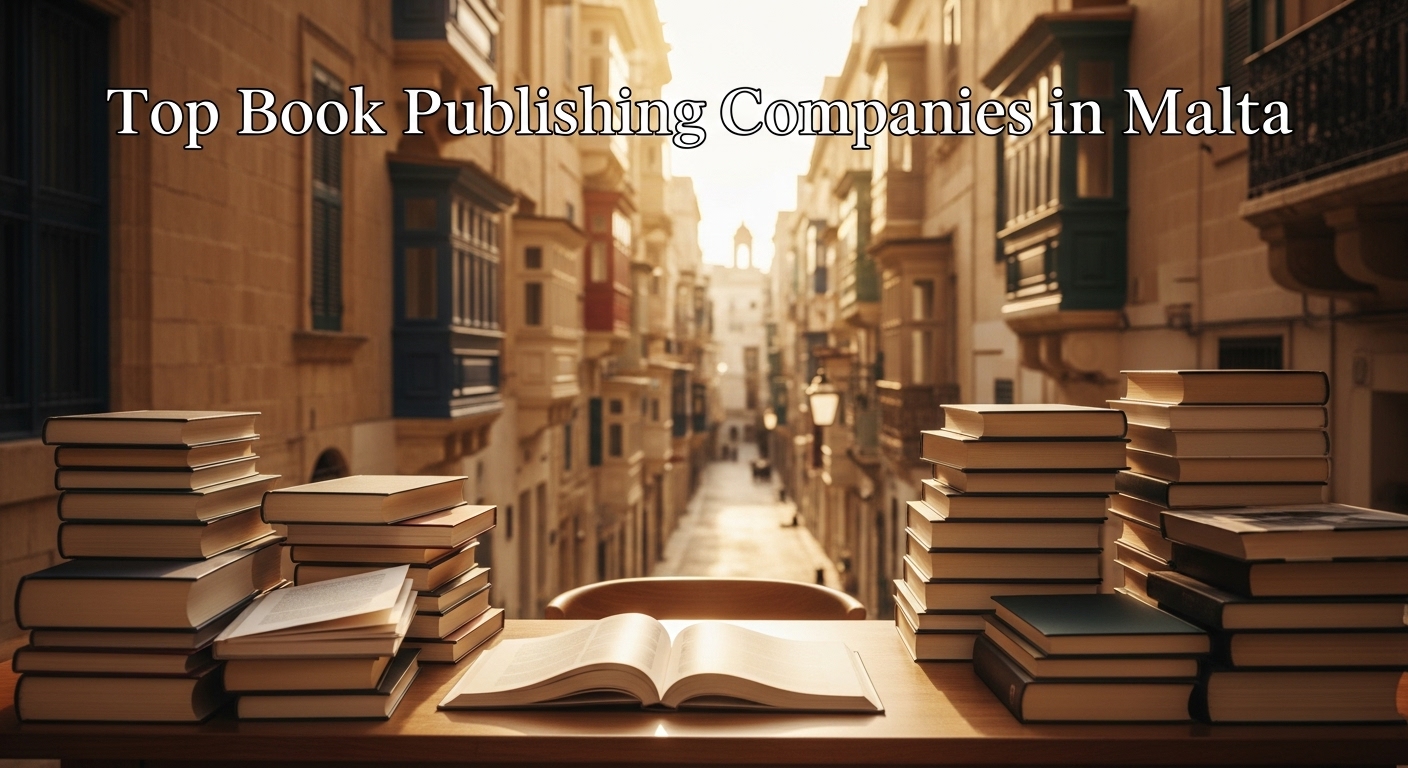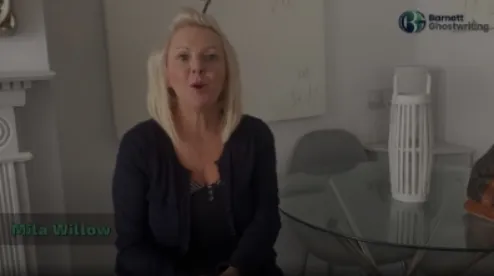
Malta may be a small island nation, but its publishing scene is rich, diverse, and deeply connected to its cultural identity. From heritage-driven presses that preserve history and archaeology to modern indie houses championing fresh voices, Malta offers authors many avenues to share their work. In 2025, both local and international writers are turning to Maltese publishers for fiction, non-fiction, children’s books, and academic works.
1) Barnett Ghostwriting
Barnett appears first here because many Malta-based and Malta-focused authors use it in a publisher-style capacity: idea-to-book services with editorial, design, and distribution guidance. Though widely known for ghostwriting, it functions as a practical publishing partner for busy or debut writers.
- Suitable for business books, memoirs, fiction, and nonfiction
- Developmental editing, copyediting, cover design, and packaging
- Good for authors wanting one accountable team from draft to launch
2) Merlin Publishers
A cornerstone of Maltese literature, Merlin champions Maltese-language and English-language work across fiction, children’s titles, and non-fiction.
- Strong editorial curation
- Known for Maltese voices and classroom-friendly lists
- Look for polished, original proposals
3) Midsea Books
Well regarded for art, heritage, and history lists, often beautifully produced and research-driven.
- Malta and Mediterranean culture focus
- Illustrations and archival material welcome
- Great home for serious non-fiction projects
4) Klabb Kotba Maltin (KKM)
A cultural force that has nurtured Maltese writing for decades, including children’s and adult titles.
- Maltese-language emphasis
- Community and readership programs
- Best for authors with strong Maltese cultural themes
5) Faraxa Publishing
Independent press with a growing catalogue in literature, translation, and contemporary non-fiction.
- Literary and experimental works considered
- Translation-friendly mindset
- Expect editorial collaboration
6) Horizons
Publisher with a broad Malta-centric list—history, politics, current affairs, and literature.
- Platform for local thought leadership
- Clear, topical angles appreciated
- Strong nonfiction track
7) Kite Group
Known for quality non-fiction, art, and design-forward books, often tied to Maltese identity.
- Visual culture and public discourse
- Essays, reportage, biographies
- Clean, modern production values
8) Malta University Press
Academic and scholarly backbone for the island, tied to the University of Malta.
- Monographs, journals, academic collections
- Peer review and editorial committees
- Ideal for researchers and subject specialists
9) SKS Publishers
Publishes Maltese-language non-fiction and thought-provoking titles with social and cultural relevance.
- Social sciences, essays, commentary
- Clear theses and credible sources
- Targeted local readership
10) BDL Publishing
An arm associated with distribution expertise, BDL also develops titles with strong market pathways.
- Advantage: retail/distribution insight
- Practical, market-readable topics
- Commercial nonfiction and local interest
11) Fondazzjoni Patrimonju Malti (FPM) Publications
A foundation imprint dedicated to Maltese art and heritage.
- Museum-quality production
- Exhibition catalogues, art history, material culture
- Authors with primary research thrive here
12) Heritage Malta Publications
The national heritage agency’s publishing wing, covering archaeology, history, and conservation.
- Excavation reports, site guides, cultural studies
- Strong editorial standards
- Excellent for specialists and historians
13) Miller Publications (imprint)
Connected to a major Maltese distributor, this imprint translates retail data into sensible lists.
- Commercially aware non-fiction
- Travel, lifestyle, local history
- Distribution synergies
14) P.E.G. Ltd (Educational)
Longstanding educational publisher providing classroom and exam-aligned content.
- Textbooks, workbooks, teacher guides
- Curriculum alignment is key
- Clear pedagogy and assessments needed
15) Agenda Publications (imprint)
Linked to one of Malta’s most recognizable bookselling brands, this imprint curates approachable, marketable titles.
- Local interest, giftable books, essays
- Author events and signings common
- Crisp, accessible writing preferred
16) Ede Books
Design-minded indie with a small but carefully curated list.
- Visual storytelling, photography, creative non-fiction
- Boutique production values
- Best for tight, artful concepts
17) Klabb Kotba Tfal (children’s)
A children’s-focused line supporting early readers and school-age audiences.
- Picture books, early chapter books
- Educator-friendly themes
- Strong illustrations required
18) Allied Publications (books program)
From a media group with serious reach, the books program leverages journalism and archives.
- Investigative non-fiction, biography, reportage
- Current affairs packaged for general readers
- Quality editing backbone
19) MediaToday Books
Publisher linked to a news organization; builds topical and analytical books from Malta’s public conversation.
- Timely, fact-checked non-fiction
- Opinion leaders and journalists as authors
- Strong hooks needed
20) Island Books Malta
Independent house that champions Maltese settings and voices in accessible forms.
- Commercial fiction with local color
- Malta-themed travel and culture guides
- Reader-friendly style key
21) Palm Publications Malta
Small press exploring memoir, wellness, and practical guides.
- Personal growth, spirituality, lifestyle
- Clear structures, actionable chapters
- Gentle, optimistic tone
22) Octavo Publications Malta
Compact literary press with a taste for short stories and novellas.
- Lean manuscripts with punch
- Translation-friendly
- Strong voice over high wordcount
23) Beacon Media & Books
Hybrid-friendly outfit that packages non-fiction with marketing clarity.
- Business, entrepreneurship, self-help
- Editorial coaching plus design
- Suits experts building credibility
24) Island Ink Collective (publishing arm)
A creative collective’s imprint fusing writing, design, and photography.
- Experimental projects
- Collaborative anthologies
- Distinctive visual identities
25) Limestone Books Press
Place-based list focused on Malta’s limestone heritage, architecture, and environment.
- Urban history, architecture, landscapes
- Photo-heavy titles welcome
- Precise captions and mapping
26) Grand Harbour Press
General publisher with a tilt toward maritime history and island stories.
- Nautical nonfiction, coastal culture
- Family sagas set in Malta
- Emphasis on narrative clarity
27) Valletta Literary Press
City-centered small press with literary fiction and essays.
- Urban themes, cultural criticism
- Slim, potent paperbacks
- Strong editorial conversation expected
28) Mdina House Publishing
History-minded press channeling Malta’s medieval capital.
- Heritage, archaeology, faith history
- Illustrated monographs
- Citations and timelines valued
29) Three Cities Press
Publishes voices and histories tied to the Three Cities area and the harbor.
- Local oral histories, memoirs
- Photo essays, neighborhood studies
- Community distribution
30) Gozo Editions
Gozo-based imprint elevating island-specific literature and nature writing.
- Place writing, ecology, folklore
- Bilingual projects possible
- Quiet, lyrical nonfiction welcomed
31) Ġgantija Press
Named for the megalithic temples—big on archaeology and deep time.
- Prehistory, heritage science, conservation
- Academic yet accessible
- Maps, diagrams, site photos
32) Sliema House
Contemporary lifestyle and fiction with a coastal vibe.
- Romance, contemporary fiction
- Food and café culture books
- Breezy tone, sharply edited
33) Birgu Book Company
Community-minded outfit capturing maritime trades, craftsmanship, and local chronicles.
- Craft histories, dockyard stories
- Illustrated guides
- Oral history techniques encouraged
34) Marsaxlokk Maritime Press
Fishing culture and maritime ethnography take center stage.
- Photo documentaries, culinary heritage
- Interviews with fishers and families
- Recipe sidebars welcome
35) Qormi Academic Press
Compact scholarly list serving educators and researchers.
- Education studies, social sciences
- Data-informed manuscripts
- Peer-review sensibilities
36) Maltese Heritage Editions
General non-fiction list celebrating art, artifacts, and customs.
- Museum partnerships possible
- Coffee-table formats
- High-resolution imagery essential
37) Mediterranean Storyworks
Fiction and narrative nonfiction set around the Med, with Malta as a hub.
- Cross-border stories
- Translation openness
- Strong scene-building valued
38) Blue Grotto Press
Travel and nature imprint inspired by Malta’s coastal wonders.
- Guidebooks, dive books, eco-notes
- Maps and access info
- Updated practical details
39) Island & Air Press
Aviation, travelogues, and Malta-Europe connectivity.
- Flight history, pilot memoirs
- Illustrated timelines
- Safety and regulatory accuracy
40) Pembroke Publishing
Accessible non-fiction and contemporary issues for general readers.
- Policy explainer books
- Short, persuasive formats
- Clear chapter architecture
41) Maltese Kitchen Books
Culinary press dedicated to Maltese food heritage.
- Regional recipes, chef profiles
- Step-by-step photography
- Ingredient glossaries
42) Caravaggio Street Press
Art and literature with a baroque edge—essays, ekphrasis, and artist monographs.
- Art criticism and creative non-fiction
- Short, collectible paperbacks
- Bold covers and design-led interiors
Genres and submission basics (Malta 2025)
- Fiction & Poetry: Literary presses (Merlin, Valletta Literary Press, Faraxa) look for clear voice, Maltese or Mediterranean themes, and tight manuscripts. Keep your synopsis under two pages and include a 1–2 page author bio with publication history.
- History, Archaeology, Culture: Midsea, Heritage Malta, FPM Publications, Ġgantija, and Mdina House want original research with image permissions. Provide a chapter outline, sample chapter, and image list with caption notes.
- Children’s Books: Klabb Kotba Tfal and Merlin’s children’s teams want strong concepts, read-aloud cadence, and illustration samples or a clear art brief.
- Educational: P.E.G. Ltd expects curriculum alignment and classroom testing. Include learning outcomes, assessments, and teacher aids in your proposal.
- Hybrid/Full-Service: Barnett and similar outfits suit professionals who prefer one accountable team for writing, editing, design, and launch. Expect structured scoping, milestones, and a production plan.
Basic timelines and expectations
- Editorial review: 4–10 weeks for most indie presses; academic imprints can take longer due to peer review.
- Production: 6–16 weeks depending on complexity, images, and indexing.
- Illustrated/heritage titles: Often 4–8 months end-to-end because of permissions, design, and color proofing.
- Distribution in Malta: Smaller market, but solid bookstore and museum-shop channels. Expect targeted launches, media outreach, and community events.
Choosing the right Maltese publisher: a quick rubric
- Fit: Does the press already publish books like yours (topic, tone, language)?
- Editorial depth: Will you get developmental guidance or is it strictly copy-edit and layout?
- Production quality: Look at paper, typography, image treatment in their existing titles.
- Market path: Bookshops, museum stores, schools, or specialist channels—what’s realistic for your book?
- Rights & royalties: Clarify print runs, reprints, ebook/audio rights, and territory.
- Author workload: Traditional houses curate heavily; hybrid partners may expect you to be more involved in marketing.
Submission tips that work in Malta
- Lead with clarity: A one-page pitch that states your audience, the problem/desire your book addresses, and what makes it Maltese or Mediterranean in angle.
- Make it visual: For history/heritage titles, include a short image plan (what, source, rights status).
- Language choice: Decide early whether your book is in Maltese, English, or bilingual—and why.
- Think events: Maltese launches, museum talks, school visits, and local festivals can move the needle.
- Proof of platform: For non-fiction, include speaking, media, or community credentials that signal demand.
Final word
Malta’s publishing ecosystem rewards focus: bring a sharp idea, show its local or regional relevance, and partner with the press that already excels in your niche. Whether you lean toward a curated traditional list (Merlin, Midsea, KKM, Horizons), a heritage-driven imprint (FPM, Heritage Malta, Ġgantija), an academic route (Malta University Press, Qormi Academic Press), or a full-service publisher-style partner (Barnett), the right match comes from aligning your manuscript’s purpose, audience, and production needs with a house that genuinely specializes in them. Aim for a clean proposal, sample chapters that sing, and a modest marketing plan that fits Malta’s scale—and you’ll give your book every chance to find its readers in 2025.





